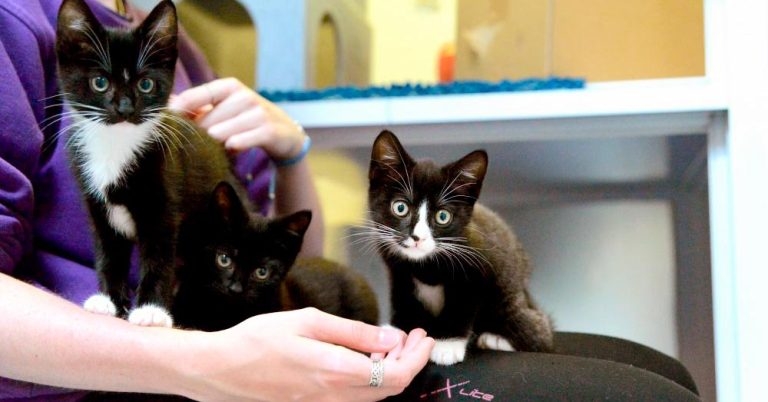10 Sept 2020
Mayhew says COVID-19 lockdown reduced owner access to veterinary practices for neutering, resulting in increase in stray, feral and owned cats giving birth.

Star, Jester and Jupiter were handed over to a private vet last month.
Charity Mayhew says the COVID-19 lockdown has resulted in an increasing number of stray, feral and owned cats giving birth this year.
With the early lockdown closing many practices to all but emergencies and some welfare organisations forced to shut their doors to the public, Mayhew said many owners were less able to access appointments for neuterings.
It said many owners have been left overwhelmed and unable to cope with an influx of new mouths to feed, with some leaving new arrivals with veterinary practices.
To highlight the plight, Mayhew has reported on two cases where kittens were taken into its care by its kitten block:
The eight cats have been treated and will be made ready for adoption, but the London-based cat and dog charity said many more have been abandoned.
It is urging the public to keep an eye out for local feral or stray cat colonies and calling on pet owners to seek neutering appointments as soon as possible.
In its press release, Mayhew said: “The coronavirus pandemic has drastically reduced the number of neutering operations we and other veterinary clinics across London and the UK are able to carry out, and with the threat of COVID-19 looking likely to continue well into 2021, the problems posed by animal overpopulation and abandonment are only set to get worse.”
Mayhew continued: “We strongly advise arranging an appointment as soon as it is safe to do so. Cats can reproduce from four months old and have three to four litters per year, while dogs can reproduce from 6 to 12 months old and have four litters per year.”
Mayhew has raised awareness of its trap, neuter, return programme, which is aiming to control and contain local cat populations.